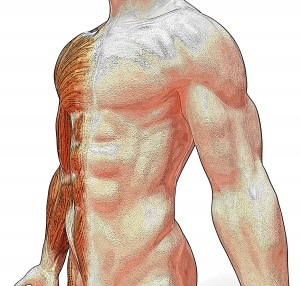Chemotherapy is the treatment of cancer with drugs that can destroy cancer cells by impeding their growth and reproduction. Though chemotherapy is an effective way to treat many types of cancer, chemotherapy treatment also carries a risk of side effects. Some chemotherapy side effects are mild and treatable, while others can cause serious complications. The drugs used are made to destroy fast-reproducing cells. However, some healthy cells also grow quickly and cancer treatments destroy these cells as well.
The fast-growing, normal cells most likely to be affected by certain treatment drugs are blood-forming cells in the bone marrow, as well as cells in the digestive track, reproductive system, and hair follicles. Thankfully, most normal cells recover quickly when treatment is over. Therefore, most side effects gradually disappear after treatment ends. During the course of your cancer journey, you may experience many, a few, or no side effects.
Some newer anti-cancer treatments — such as Herceptin for breast cancer — may cause heart damage as well, although the effect is often temporary and reversible.
If your doctor is considering using a chemotherapy drug that may affect your heart, you may undergo heart function testing before and during treatment. Be sure to ask questions if you have any misgivings.
Chemotherapy drugs that may cause nausea and vomiting
Certain chemotherapy drugs are more likely than are others to cause nausea and vomiting. Some medications associated with significant risk of these side effects include:
- Altretamine (Hexalen)
- Busulfan (Busulfex, Myleran)
- Carmustine (Bicnu)
- Cisplatin (Platinol)
- Cyclophosphamide (Cytoxan)
- Dacarbazine
- Doxorubicin (Adriamycin)
- Epirubicin (Ellence)
- Estramustine (Emcyt)
- Etoposide
- Ifosfamide (Ifex)
- Lomustine (Ceenu)
- Mechlorethamine (Mustargen)
- Procarbazine (Matulane)
- Streptozocin (Zanosar)
- Temozolomide (Temodar)
You will most likely be given a prescription medication to help with these side effects. There are also nutritional foods and supplements that can help. Acupuncture has been known to reduce the occurrence of nausea and vomiting, and is a wonderful complimentary therapy.
Hair Loss
Chemotherapy may cause hair loss all over your body — not just on your scalp. Sometimes your eyelash, eyebrow, armpit, pubic and other body hair also falls out. Some chemotherapy drugs are more likely than others to cause hair loss, and different doses can cause anything from a mere thinning to complete baldness. Talk to your doctor or nurse about the medication you'll be taking.
I found that a wig helped me through this phase, and I bought eyebrow tattoos online that worked well. A light eyeliner helped me feel better about losing my eyelashes. Three weeks after the end of Chemo, my hair began to grow back.
'Chemo Brain'
Chemo brain is a common term used by cancer survivors to describe thinking and memory problems that can occur after cancer treatment. Chemo brain can also be called chemo fog, cognitive changes or cognitive dysfunction.
Signs and symptoms of chemo brain may include:
- Being unusually disorganized
- Confusion
- Difficulty concentrating
- Difficulty finding the right word
- Difficulty learning new skills
- Difficulty multitasking
- Fatigue
- Feeling of mental fogginess
- Short attention span
- Short-term memory problems
- Taking longer than usual to complete routine tasks
- Trouble with verbal memory, such as remembering a conversation
- Trouble with visual memory, such as recalling an image or list of words
Signs and symptoms of cognitive or memory problems vary from person to person and are typically temporary, often subsiding within two years of completion of cancer treatment.
Again, there are many nutritional supplements and foods that can help you with Chemo Brain. See my post on Managing Side Effects.
Books:
- Questioning Chemotherapy (1996) Equinox Press. ISBN 978-1881025252
- Integrative Strategies for Cancer Patients: A Practical Resource for Managing the Side Effects of Cancer Therapy; Elena J. Ladas , Kara M. Kelly
- Living well with cancer: a nurse tells you everything you need to know about managing the side effects of your treatment; by Katen Moore, Libby Schmais
